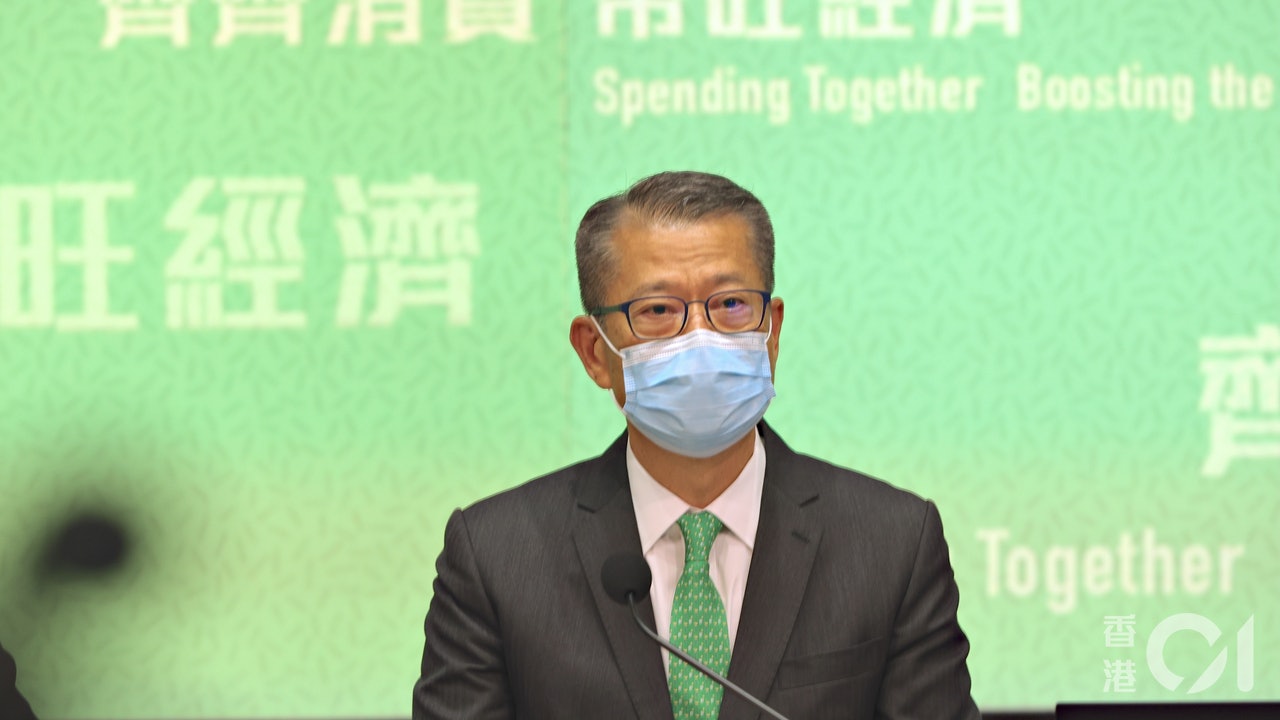01 view
Written by: Commentary Editing Room
2021-06-21 18:00
Last update date: 2021-06-21 18:00
Last Friday (18th), the government explained and announced the details of the distribution of electronic consumer coupons, and decided to distribute 5,000 yuan in consumption to the public in two to three phases through four stored-value payment tool operators.
Officials explained that the original intention of the installment distribution was to extend the revitalization effect and encourage small businesses to benefit.
However, a considerable part of the current retail business landscape is already occupied by large groups. No matter how the government induces the citizens to decentralize consumption, it is believed that only a small number of small merchants can benefit from consumer vouchers.
Since the Financial Secretary Chen Maobo announced the launch of consumer vouchers in February this year, there has been a debate about the issue of distributing consumer vouchers in installments. Many citizens have criticized the related arrangements as disturbing the people, and believe that the consumption amount should be distributed in one go so that the public can decide when and how to use it. .
But from the government's point of view, if consumer coupons are to be more effective, they must ensure that the overall local retail service industry can benefit, not just a few large merchants.
Financial Secretary Chen Maobo.
(Photo by Ou Jiale)
In his blog at the end of February, Chen Maobo said frankly, "The instalment of consumer vouchers for a limited period of time will help small merchants benefit from the plan. In addition to bringing more business, it also strengthens the incentives to use electronic payments, so that they can better To a large extent benefit from the new business opportunities brought about by electronic payments.” He added a few days ago that the instalment distribution allows the momentum to drive the economy for a period of time.
There are reasons for imposing limits on consumer vouchers
Indeed, if citizens tend to spend 5,000 yuan to buy new phones or home appliances, even though the overall local sales will increase, the beneficiaries are likely to be concentrated in mobile phone retailers, department stores and chain electrical appliance merchants, while self-employed households in housing estates, shopping malls, etc. Tea restaurants and clothing stores can only sigh at the door.
From this perspective, it is not unreasonable that the Hong Kong Government currently imposes certain restrictions on the issuance and use of consumer coupons.
When Chen Maobo announced the measures earlier, he proposed to distribute 1,000 yuan in five installments. However, due to the opposition of the public and the business community, it was changed to two to three installments and could be used in combination to balance the opinions of all parties.
Similar policies in neighbouring areas also have similar restrictions. The Macau government issued a total of 8,000 yuan in electronic consumer vouchers to citizens this year, but stipulated that each citizen can use a maximum of 300 yuan in consumer vouchers per day. Taiwan’s "triple coupon" last year required citizens Use it first and then apply to the government for repayment; the former is obviously to encourage people's livelihood consumption, and the latter is to encourage people to "post money" with government subsidies to promote consumption.
On June 18, Financial Secretary Chen Maobo, Government Information Technology Director Lin Weiqiao, and Director of the Budget and Tax Policy Group of the Office of the Financial Secretary Wang Xueling announced the details of electronic consumer coupons.
(Photo by Yang Kaili)
The problem is that although the Hong Kong government has good intentions, the retail service industry is currently dominated by large companies. It is believed that most of the proceeds of consumer coupons will also go to the pockets of large companies, and the effectiveness of small businesses is limited.
The Census and Statistics Department recently summarized the total retail sales in April this year. Of the 27 billion yuan in sales, nearly a quarter came from supermarkets and department stores.
Refer to the Census and Statistics Department's report covering the distribution of the retail industry in 2019. In the retail industry, companies employing less than 50 people account for 90% of the industry, but sales and other revenues are only more than 20% of the total.
In contrast, companies employing at least 200 people accounted for 0.2% of the total, but sales and other income accounted for more than half.
The food service industry is a little more balanced. Companies that employ less than 50 people account for about 90% of the total. The related revenue is about half of the total. The other half of the revenue is divided by 10% of companies that employ at least 50 people.
According to a survey conducted by the Federation of Trade Unions, 78.3% of respondents aged 55 or above prefer Octopus cards to receive electronic consumer coupons, far exceeding Alipay, which is chosen by 6.4% of respondents.
(Provided by the Federation of Trade Unions)
Small businesses have limited benefits
The government has repeatedly emphasized that small and medium-sized enterprises are the backbone of Hong Kong's economy, and the private sector has consciously patronized small businesses. However, large-scale retail enterprises still have the upper hand in the distribution of consumer coupons.
Large companies have a variety of methods to take advantage, such as occupying superior shops on the street and having a large number of shops. They are willing to spend money on online and offline promotion, so it is easier to attract customers to consume.
It must be pointed out that large-scale retail service companies are very important to Hong Kong because they have employed 100,000 employees to support the labor market. However, under the new crown epidemic, they have more spare capacity to weather the low consumption tide by relying on past reserves or resource allocation.
On the contrary, small businesses can hardly withstand the impact, as evidenced by the closure of a large number of shops.
During periods of economic adversity, if the government wants to bail out the business community, small businesses should precede large enterprises.
It can be expected that for large enterprises, the additional income brought by consumer vouchers is the icing on the cake, but for small businesses it will be a long drought.
If the government launches similar measures in the future, it can try to focus on supporting small and medium-sized merchants. For example, it can provide additional discounts when using consumer vouchers at small and medium-sized merchants. At the same time, it should also persuade the public to explain that appropriate restrictions on consumption methods are effective The role of the economy to gain more public recognition.
Consumer vouchers are a good opportunity for the popularization of electronic payment
[Budget] Insufficient rescue vouchers can stimulate the economy
Chen Maobo Electronic Consumer Voucher SME 01 Viewpoint






/cloudfront-eu-central-1.images.arcpublishing.com/prisa/3I74UEXLYRBBRPGPSGWNN6WXH4.jpg)
